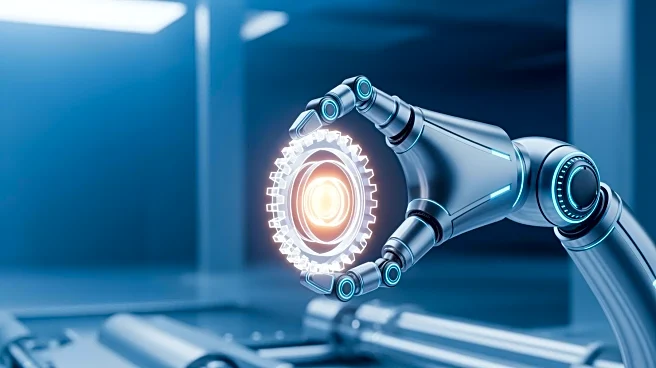What's Happening?
Harvard University scientists have created cell-like chemical systems that simulate metabolism, reproduction, and evolution. This breakthrough demonstrates that self-created systems can arise in non-biochemical molecules, challenging existing theories about the origins of life. The research highlights the potential for non-biological systems to exhibit life-like properties, which could have implications for understanding the fundamental processes of life and the development of synthetic biology.
AD
Why It's Important?
The development of chemical systems that mimic biological processes could revolutionize synthetic biology and biotechnology. By understanding how life-like properties can emerge in non-biochemical systems, researchers may develop new methods for creating artificial life forms or enhancing existing biological systems. This could lead to advancements in medicine, environmental science, and technology, offering new solutions to complex problems such as disease treatment and sustainable resource management.











